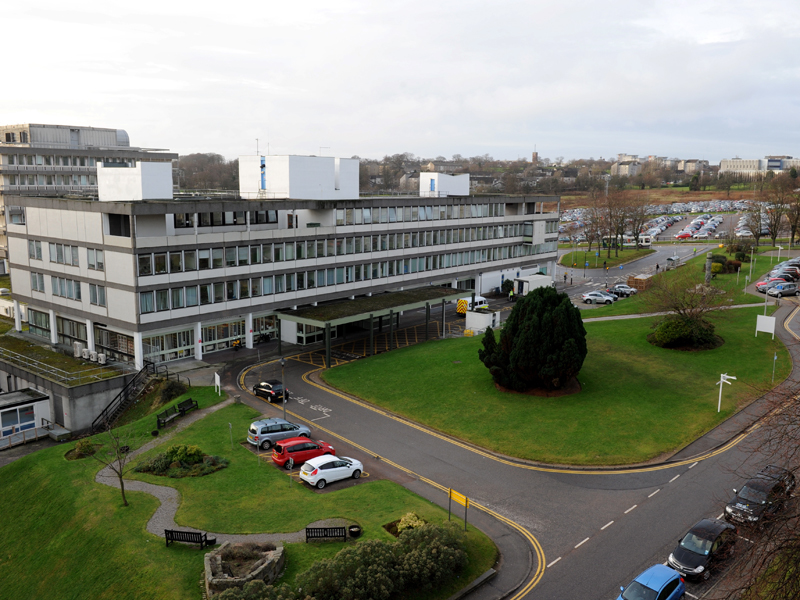Frontline staff have been praised for maintaining patient care at Aberdeen Royal Infirmary while top tier management showed weaknesses in their leadership of NHS Grampian.
Patients at the flagship hospital were found to receive care broadly in line with that on offer across the country, Healthcare Improvement Scotland (HIS) said.
However, HIS said it was “overwhelmingly evident” there was potential for patient care and safety to be compromised by issues including weak leadership, low morale, poor relations between consultants and executives and a forceful management style – some which was perceived to be bullying.
The board of NHS Grampian, led by chairman Bill Howatson, who will be replaced in the new year, was found to be ill-informed about several problems at the hospital.
The report said: “Patient outcome data did not show consistent or widespread concerns about patient safety at Aberdeen Royal Infirmary. However, there is a need to ensure effective action in addressing current shortcomings in system and governance to prevent future potential harm to patients.
“There is an urgent need for NHS Grampian to address these issues in order to ensure safe care.”
The executive team were judged to be remote by some staff, inspectors said, with a lack of clarity surrounding the management structure.
Inspectors were also told of multiple concerns being raised by staff by email and never being answered.
Interim board chief executive Malcolm Wright said the report had made “stark” reading.
Mr Wright said: “These reports highlight issues with leadership and management, culture and behaviour, accountability and governance within NHS Grampian. We take these reports extremely seriously and we accept the recommendations that the reports make.”
Dr Izhar Khan, chairman of the area medical committee, and Norman Binnie, chairman of the consultants committees at NHS Grampian, have both been outspoken about their concerns at ARI, particularly around staffing levels.
A joint statement issued last night said: “Staff at ARI – medical, non-medical and nursing – are insuring a safe service for the public of the north east and thanks to them ARI is a safe place.
“However, it is safe for the moment. The HIS report clearly states that it is because of the dedication of staff that the service is safe. The reliance on the individual dedication of staff to compensate for a poor system is unacceptable.
“The report contains a series of instances suggesting failure at board and executive level. Because patients are safe at ARI blame cannot be apportioned to hardworking and thinly spread clinicians. We look forward to working with the interim chief executive to now take the necessary steps and take this organisation out of the mess we are in.”
